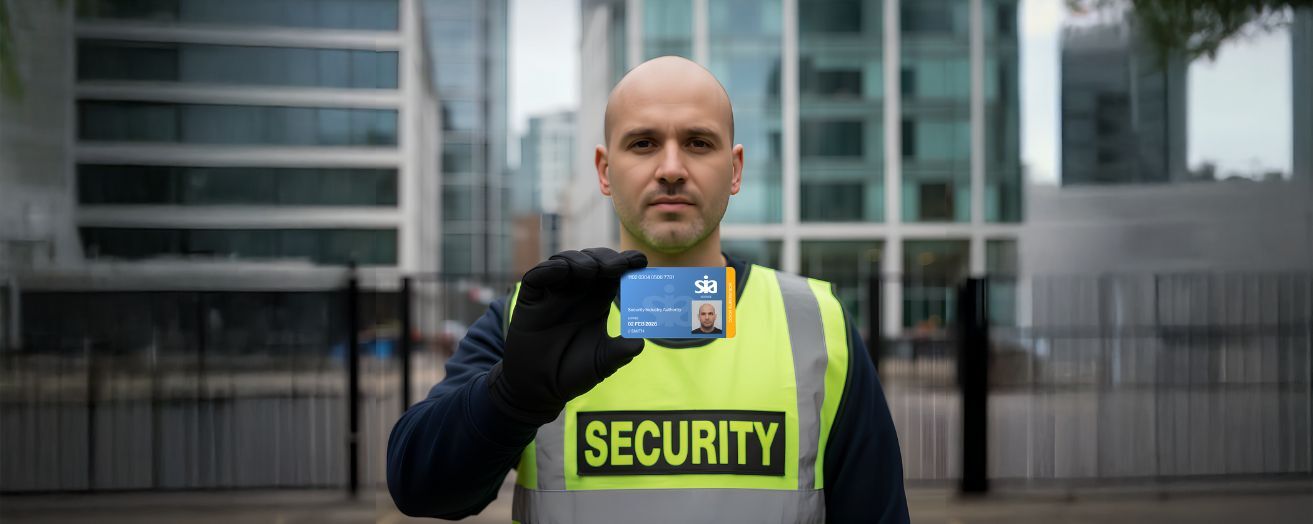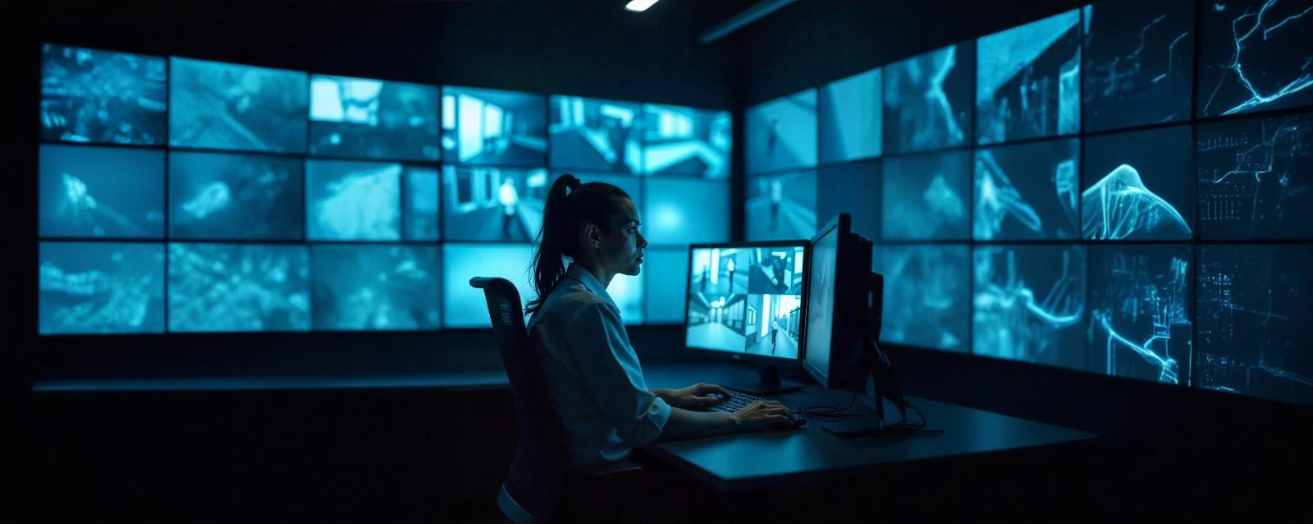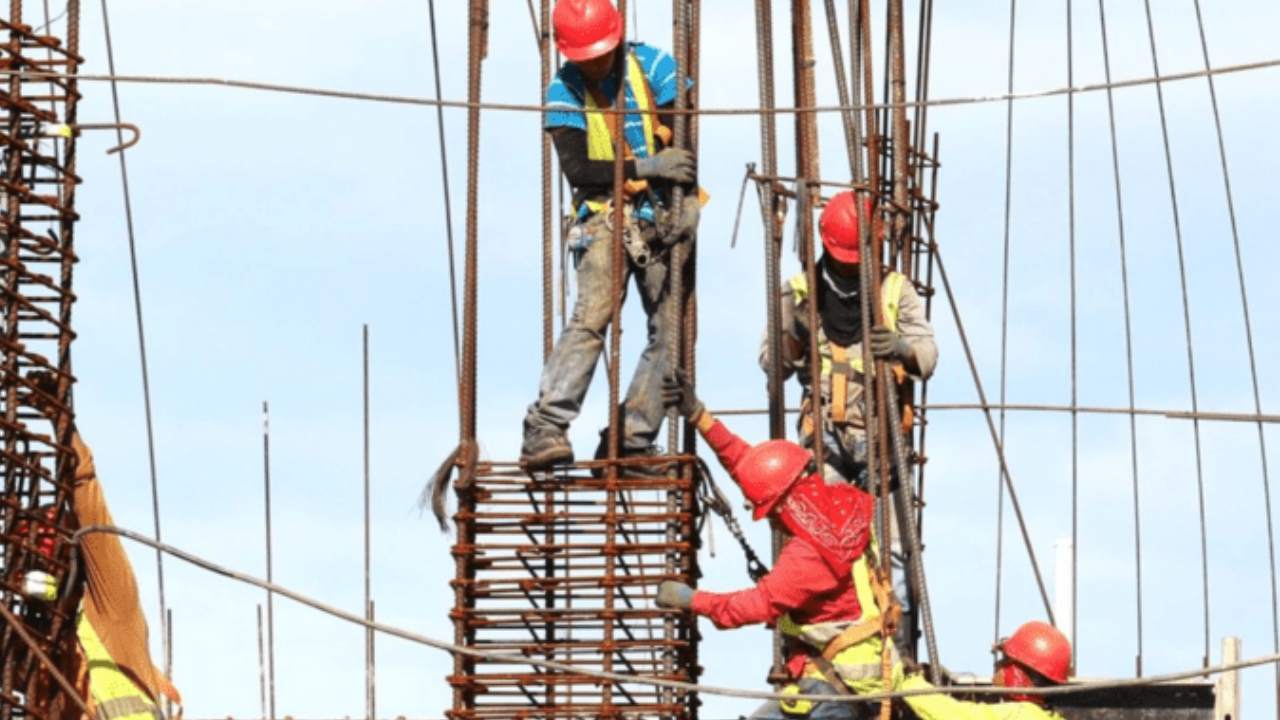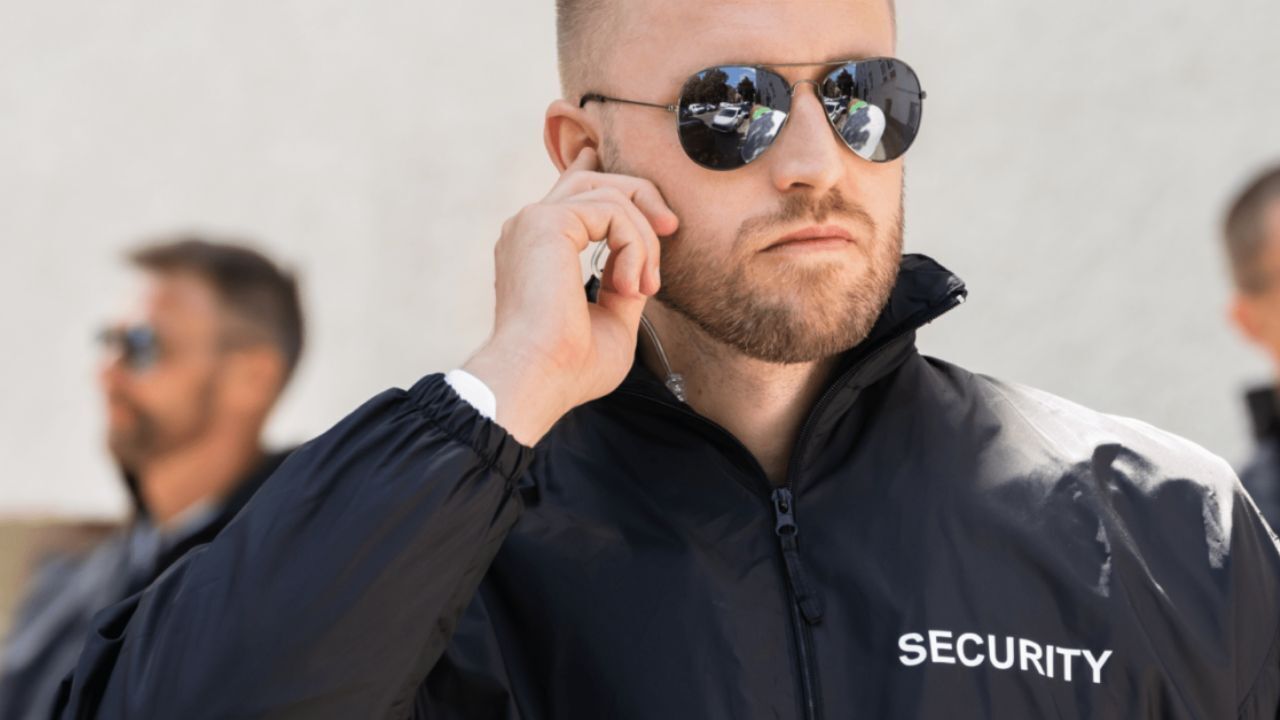So, you’re thinking about breaking into the UK security industry? Smart move. With demand for qualified security professionals at an all-time high and roles paying anywhere from £12.21 to £25+ per hour, it’s a solid career choice. But here’s the thing—you can’t just rock up to a venue and start working. You need an SIA licence first.
Don’t worry; getting one is easier than you might think. With the right training and a few simple steps, thousands of people across the UK get licensed every month. That said, working without one isn’t an option. It’s a legal requirement, and skipping it could result in serious penalties, like a fine of up to £5,000 or even six months in prison. Not exactly the career start you’re after, right?
This guide cuts through the confusion and gives you everything you need to know about getting licensed in 2026—from choosing the right licence type to navigating the application without the headaches. By the end, you’ll know exactly what to do, how much it’ll cost, and how quickly you can get started.
Key Takeaways
- It’s legally required: Working without an SIA licence is a criminal offence
- Timeline: 4-6 weeks from training to licence approval
- Total cost: £384-£684 depending on licence type (training + Emergency First Aid at Work certification + £184 application fee)
- Best option for most: The door supervisor licence gives you the widest job opportunities
- Criminal records: They don’t automatically disqualify you—the SIA assesses each case individually
- New 2025 rules: Licence renewals now require refresher training and EFAW certification from April 2025
- Quick ROI: Your SIA licence pays for itself within the first week of work at typical security wages
What Actually Is an SIA Licence?
Let’s start with the basics. The Security Industry Authority (SIA) is the government body that regulates private security in the UK. Think of them as the gatekeepers—they decide who’s qualified to work in security and who isn’t.
An SIA licence is your official stamp of approval. It proves you’ve completed proper training, passed background checks, and meet the legal standards to work in roles like door supervision, manned guarding, CCTV operation, or close protection.
Without it? You’re breaking the law the moment you start work.
Frontline vs Non-Frontline Licences
There are two main categories worth understanding. Frontline licences are for people doing hands-on security work—guarding doors, patrolling premises, watching CCTV screens, or protecting clients. These are the roles most people think of when they picture security work.
Non-frontline licences, on the other hand, are for managers and supervisors who oversee security teams but don’t do the frontline work themselves. This guide focuses on frontline licences since that’s where most people start their careers.
Want the full breakdown? Learn how to get your SIA licence on the official Get Licensed page.
Why You Actually Need an SIA Licence (It’s Not Just a Formality)
Here’s the reality: working without an SIA licence is a criminal offence under the Private Security Industry Act 2001. The penalties are serious—up to £5,000 in fines and six months in prison. Employers hiring unlicensed staff face the same consequences.
But beyond the legal stuff, having your licence opens doors—literally and figuratively.
What Your Licence Gets You
Your SIA licence gives you the legal right to work in private security across the UK. It’s not just a piece of plastic—it’s proof that you’re qualified, trustworthy, and serious about your career.
Licensed professionals earn significantly more than unlicensed ones. We’re talking about a proper wage, not pocket money. Plus, you’ll find that career progression into management roles and specialist positions requires licensing as standard.
Most security jobs—whether it’s a nightclub in Manchester, a corporate office in London, or an event in Birmingham—require an SIA licence as the bare minimum. If you’re wondering, “Do I need an SIA licence to work at events?”, the answer is almost always yes for any paid security role.
The professional credibility factor matters too. When you turn up to an interview with your licence in hand, employers know you’ve done the work and passed the checks. It shows you’re committed to the profession, not just looking for quick cash.
Is an SIA Licence Worth It? Leveraging 2025 Insights
With training and application costs reaching £484-£584, it’s natural to question whether an SIA licence is a smart investment. The short answer? Absolutely.
The Numbers: Licensed security professionals command significantly higher wages than unlicensed personnel. Your licence pays for itself within the first week of work, and opens doors to supervisory roles that unlicensed workers can never access.
Market Reality: The security sector has never been more dynamic, with high demand across retail, corporate, hospitality, events, and specialist protection. An SIA licence isn’t just about legal compliance—it’s professional recognition that makes you credible to top-tier employers.
Our detailed analysis shows why an SIA licence is worth it in 2026, including ROI calculations and long-term earning potential.

The 4 Main SIA Licence Types (And Which One You Should Get)
Not all security licences are created equal. Depending on what you want to do, you’ll need a specific type. Here’s the breakdown of what’s available and what each one actually lets you do.
Door Supervisor Licence
This is the Swiss Army knife of SIA licences—you can work pretty much anywhere. Door supervisor covers working in licensed premises like bars, pubs, and clubs, managing venue access, handling conflict situations, plus all the standard security guard duties.
The training takes six days and pricing starts from £249.99 plus mandatory Emergency First Aid at Work training (£99.99) and the £184 licence fee. This is the most popular choice, and for good reason. Get your door supervisor licence, and you’ll have the widest range of job options available. If you’re starting out and not entirely sure which direction you want to go, this is your best bet. It keeps all your options open.
Security Guard Licence
The security guard licence covers manned guarding of premises, protecting property, and patrolling sites. But here’s the catch—you can’t work in venues serving alcohol with this licence.
It’s best suited for static security roles like retail, offices, warehouses, and construction sites. The training takes four days and typically starts from £189.99, plus mandatory Emergency First Aid at Work training (£99.99) and the £184 licence fee. If you’re certain you don’t want to work nightlife or events, this could save you some cash upfront.
CCTV Operator Licence
CCTV operators monitor public or private spaces via surveillance systems, detect incidents, gather evidence, and ensure compliance with surveillance regulations. If you’ve got a keen eye for detail and prefer working with technology over being on the ground, getting a CCTV licence can help you progress in your security career.
The training takes three days and pricing starts at £219.99, plus mandatory Emergency First Aid at Work training (£99.99) and the £184 licence fee. You’ll spend most of your time in control rooms rather than on patrol.
Close Protection Licence
Close protection is the premium end of the industry. This SIA licence covers personal protection of individuals—think VIPs, executives, and celebrities. You’ll handle risk assessment, secure transportation, and threat management.
The training for getting a close protection licence is intense—16 to 19 days—and costs approximately £1,994, plus mandatory Emergency First Aid at Work training (£99.99) and the £184 licence fee. This is specialist territory with high earning potential (£15-£40/hour) but requires serious commitment. Most people who go into close protection have experience in security, military, or police backgrounds.
Quick SIA Licence Comparison
| Licence Type | Training Days | Total Cost (including licence application fee) | Where You Can Work |
| Door Supervisor | 6 days | £484-£584 | Licensed venues, events, retail, offices |
| Security Guard | 4 days | £374-£484 | Offices, retail, warehouses (no licensed venues) |
| CCTV Operator | 3 days | £484-£584 | Control rooms, surveillance centres |
| Close Protection | 16-19 days | £1,284+ | VIP/executive protection, high-risk roles |
Still not sure which one to choose? The door supervisor licence gives you the most options and is the safest bet if you’re just starting out. For a more thorough analysis, check out our blog on the different types of SIA licences.
Should You Get More Than One SIA Licence?
Many people in the industry choose to get both a door supervisor and CCTV licence to increase their job options and earning potential. This dual SIA licence setup allows you to work in more environments—from clubs and retail to control rooms and event venues.
Booking both courses together through Get Licensed makes it easy to upskill quickly and unlock more opportunities.
How to Get Your SIA Licence: The 5-Step Process
Right, let’s get practical. Here’s exactly what you need to do to get licensed, step by step.
Step 1: Check If You’re Eligible
Before spending any money, make sure you meet the basic requirements. You need to be at least 18 years old and have the legal right to work in the UK. You’ll also need to pass a DBS criminal record check and have valid ID documents ready.
The good news is that most people meet these requirements without any issues. Got questions about eligibility? Read our step-by-step guide to applying for your SIA licence for the full lowdown.
Step 2: Complete an SIA-Approved Training Course
You can’t skip this part. Every SIA licence requires passing an approved training course from a recognised provider. The training covers UK security law and regulations, health and safety procedures, conflict management and de-escalation, and emergency procedures. Door supervisors also learn physical intervention techniques.
The training includes both practical assessments and written exams. How long it takes depends on your chosen licence: door supervisor training runs for 6 days, security guard for 4 days, CCTV operator for 3 days, and close protection for 16 to 19 days. Find SIA-approved courses near you and book your spot.
Pro-tip: Book your course with Get Licensed. We take the guesswork out. With trusted trainers, real reviews, and UK-wide course availability, booking your SIA course is fast, simple, and stress-free. Explore training dates and venues here.
Don’t delay your booking! Course dates fill up fast, especially in major cities, and you can’t apply for your licence without completing this step first. Check out this SIA licence guide if you’re looking for tips on preparing for your SIA licence course.
Step 3: Apply Online via the SIA Portal
Once you’ve passed your training and received your qualification certificate, it’s time to apply. You’ll need your training certificate number, your complete 5-year address history, two forms of ID (passport or driving licence, plus utility bills or bank statements), your National Insurance number, and right-to-work documents.
The application process itself is straightforward. Create an account on the official SIA website, fill in the online application form (takes about 30-45 minutes), upload your documents, and double-check everything before submitting.
Common Application Mistakes to Avoid
People often trip up on a few key things. Missing addresses from your 5-year history is surprisingly common—the SIA needs complete information. Using expired ID documents will hold up your application, so check dates before you start. Not declaring past convictions is a serious mistake that can get your application refused and even lead to prosecution.
Another common error? Applying too long after completing training. Certificates can expire, so don’t let yours gather dust for months before submitting your application.
Step 4: Pay the £184 Licence Fee
The SIA licence fee is £184 as of 2026—the lowest it’s been since 2004. This fee is non-refundable, so make absolutely certain you meet all the requirements before paying.
Your £184 covers criminal record checks through the DBS, identity verification, right-to-work confirmation, and administrative processing. Payment is taken when you submit your online application. Once approved, your licence is valid for three years.
Step 5: Wait for SIA Decision (2-4 Weeks)
After you’ve submitted everything, the SIA runs background checks. This typically takes two to four weeks, but it can be longer in certain situations.
If you’ve lived abroad recently, the SIA will need overseas criminal checks. If your criminal record needs further assessment, that adds time. Issues with your documents or frequent changes to your name or address can also extend the process.
You can track your application status through your SIA online account, which at least takes away some of the uncertainty.
Important: You cannot work in any licensable role while waiting for your licence. Anyone who tells you otherwise is wrong. Learn more about working while waiting for your SIA licence.
What Does an SIA Licence Actually Cost?
Let’s talk money. Getting your SIA licence isn’t free, but it’s also not going to bankrupt you. Here’s the complete SIA licence cost breakdown.
The Three Main Costs
You’re looking at three essential expenses. First, there’s the SIA licence course, the starting price for which starts from £189.99 to £299.99+, depending on which licence type you choose. Second, there’s mandatory Emergency First Aid at Work training at £99.99. Third, there’s the SIA application fee of £184, which is non-refundable and paid directly to the SIA.
Get Licensed offers the option to book both your EFAW and security training together — saving you time, effort, and the hassle of managing multiple bookings.
Hidden Costs to Consider
Beyond the obvious fees, you might face some additional expenses. Travel to your training venue adds up if it’s not local. If the training is far from home, you might need accommodation for a few days. Exam retakes are rare, but worth budgeting for just in case. Some licences also require Emergency First Aid at Work certification, which is an extra cost.
Get Licensed’s nationwide coverage includes 85+ locations, making it easier for learners to choose a training centre near them and avoid travel and accommodation expenses.
The Good News: It Pays for Itself Fast
Once licensed, you’re earning £12.21 to £25 per hour, depending on your role and location. At the lower end of £12.21 per hour, you’ll recoup your investment in about 37 to 56 hours of work. That’s roughly one week. Then everything after that is profit.
Want to save money? Check if you’re eligible for free SIA training through Job Centre Plus or other government schemes. For a complete cost analysis, including regional variations and money-saving tips, read our full SIA licence cost guide.
Can You Get an SIA Licence with a Criminal Record?
This is one of the most common questions we get. The short answer: it depends.
Having a criminal record doesn’t automatically disqualify you from getting an SIA licence. The SIA assesses each application individually based on several factors.
How the SIA Assesses Your Application
The SIA looks at the type of offence—whether it was violent, sexual, dishonesty-related, or something else. They consider how long ago it happened and what sentence you received. Your behaviour since the conviction matters too. Have you stayed out of trouble? Have you shown you’ve changed?
What Offences Matter Most
The SIA takes certain offences very seriously. Violence-related convictions like assault, GBH, or ABH raise red flags. Any sexual offence, especially if you’re on the sex offenders register, is scrutinised heavily. Dishonesty offences like theft, fraud, or deception are problematic in a profession built on trust.
Drug-related convictions vary—dealing or trafficking is serious, while possession is assessed individually. Public order offences like affray or threatening behaviour also factor into their decision.
For a comprehensive breakdown of how every specific offence type is assessed, read our A-Z guide to SIA licence criminal record checks.
Changes Coming December 2025
From 1 December 2025, the SIA is expanding its list of relevant offences. They’re adding human trafficking, modern slavery, revenge porn, female genital mutilation, and domestic abuse to the list. Immigration offences and tax evasion are also being included.
They’re also introducing two new refusal categories:
Absolute Refusal applies to the most serious cases—multiple sexual offences, child abuse, or being on the sex offender register. Appeals are only accepted if based on incorrect information.
Intention to Refuse covers single sexual offences or custodial sentences over 48 months. You can appeal these by demonstrating you pose no public risk.
The Golden Rule: Be Honest
Never, ever hide a conviction. The SIA has access to full criminal record databases. They will find out. And when they do, your application will be automatically refused—plus you could face charges for providing false information.
Even if you think something’s too old or too minor to matter, declare it anyway. Let the SIA make the decision about whether it affects your application.
Worried about your criminal record? Read our detailed guide on getting an SIA licence with a criminal record to understand how the SIA assesses applications.
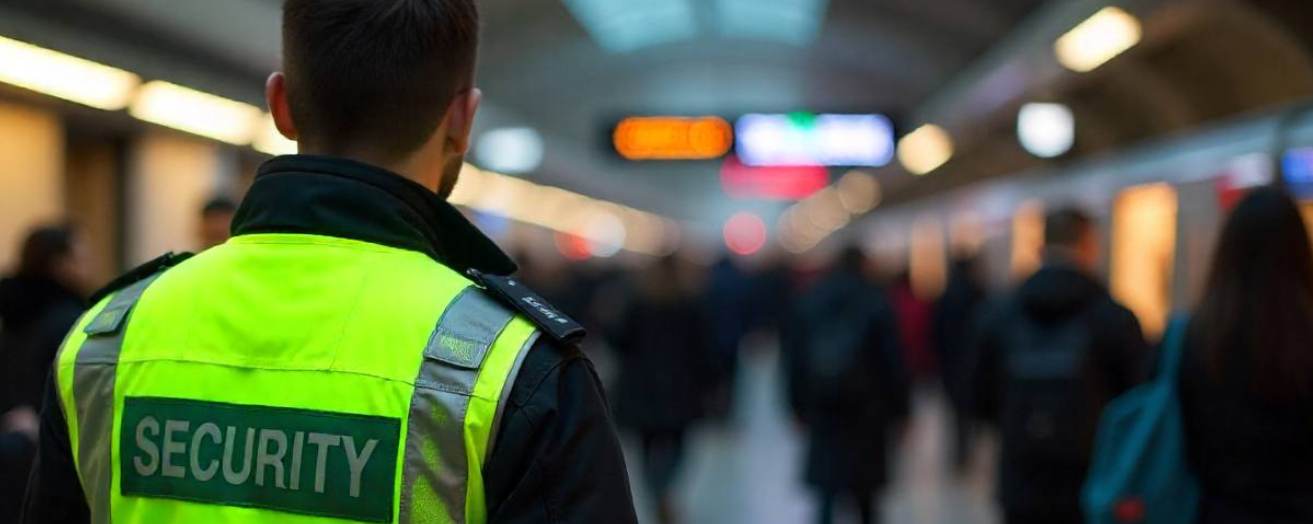
Documents You’ll Need for Your Application
Get these sorted before you start your application. It’ll save you time and frustration.
Group A Documents (Choose ONE)
You need one primary form of identification. This can be a valid UK or EEA passport, a valid UK or EEA photocard driving licence, or a valid EEA national identity card.
Group B Documents (Choose TWO)
For Group B, you need two documents from this list. A bank or building society statement from the last three months works. So does a utility bill for gas, electricity, or phone from the last three months. A council tax statement from the last 12 months is acceptable, as is a mortgage statement from the last 12 months. An HMRC letter from the last three months also qualifies.
Important notes: All documents must be originals—no photocopies accepted. If any documents aren’t in English, you’ll need certified translations. At least one of your Group B documents must show your current address.
Other Essential Information
Beyond these documents, you’ll need your complete 5-year address history. Don’t forget any addresses, even short-term stays. You’ll also need your National Insurance number, your training qualification certificate, and right-to-work documents if you’re a non-UK national.
Want the full breakdown? Head over to our SIA licence documents page for a more detailed analysis.
Renewing Your SIA Licence: What You Need to Know
Your SIA licence lasts three years. After that, you need to renew it if you want to keep working.
When to Renew
You can start the SIA licence renewal process up to four months before your current SIA licence expires. Don’t leave it until the last minute—working with an expired licence is just as illegal as working without one.
What’s New for 2026 Renewals
In April 2025, new SIA licence requirements were introduced. Mandatory refresher training is now required before renewing door supervisor and security guard licences. This updates your knowledge on counter-terrorism awareness, updated emergency procedures, changes to legislation, and modern conflict management techniques. The SIA has also introduced refresher training requirements for renewing close protection licences, which will be implemented from April 2026.
Before you can attend refresher training, you need a current Emergency First Aid at Work (EFAW) certificate. No EFAW means no refresher course, which means no renewal. For complete details on the new requirements, read our guide on SIA licence renewal training updates covering everything that’s changed for 2025/26.
How the Renewal Process Works
Start by getting your EFAW certificate if it’s expired or you never had one. Then complete your SIA refresher training. After that, log in to your SIA online account, submit your renewal application, and pay the £184 renewal fee. Wait for approval—renewals are usually faster than initial applications. Confused about the current refresher training vs the previous top-up training? Read our guide explaining SIA top-up vs refresher training to understand the difference between the two.
Ready to renew? Learn how to renew your SIA licence online with our step-by-step SIA licence renewal checklist.
How To Spot A Fake SIA Licence Card
With the rise in licence fraud, it’s important to know what a genuine SIA licence looks like. Fake licences are becoming more sophisticated, but there are telltale signs that give them away.
Genuine SIA licences have specific security features, including holographic elements, unique reference numbers that can be verified online, and specific formatting that’s hard to replicate. Employers are increasingly vigilant about checking licence authenticity.
Learn the key indicators in our guide on how to spot a fake SIA licence card to protect yourself and your employer from fraud.
5 Mistakes That Will Delay Your Application (And How to Avoid Them)

Most application delays aren’t caused by the SIA—they’re caused by avoidable mistakes during the preparation stage. Knowing what trips people up can save you weeks of waiting and unnecessary stress.
Here are the five most common errors we see, and how to sidestep them completely.
Choosing the Wrong Licence Type
The mistake people make is getting a Security Guard licence when they actually want to work in pubs and clubs. The fix? If you’re unsure, go with the door supervisor licence. It’s the most versatile and covers everything a Security Guard licence does, plus licensed premises.
Incomplete Address History
“Forgetting” to include the six months you lived at your mate’s place three years ago won’t fly. The SIA needs your full 5-year address history. Dig out old bills, check your credit report, ask family members—whatever it takes to get it complete.
Missing or Expired Documents
Starting your application only to realise your passport expired two months ago is frustrating and avoidable. Check that all your documents are current before you start the application. Get renewals sorted first if needed.
Waiting Too Long After Training
Completing training and then waiting weeks or months to apply is a bad idea. Training certificates can expire, and you’ll waste time and money if you have to retake the course. Apply within a few days of passing your SIA licence course.
Not Declaring Criminal Convictions
Thinking “that caution from 10 years ago doesn’t matter, right?” is dangerous territory. Declare everything. The SIA will find out anyway. Non-disclosure is grounds for automatic refusal and possible prosecution.
Want more detail? Read our complete guide on common mistakes to avoid when applying. And if you’re worried about rejection, check out how to avoid having your SIA licence application rejected.
How to Get Hired with an SIA Licence
Got your SIA licence but not landing interviews yet? Don’t stress — you’re not alone, and the good news is the industry is hiring. There’s strong demand for licensed professionals across the UK — you just need to know how to stand out.
Common Mistakes: Only using generic job sites, applying broadly without understanding different security sectors, and failing to highlight transferable skills from previous roles.
What Works: Over 70% of security jobs are never publicly advertised—they’re filled through industry connections. Start with temporary agency work, volunteer for events, and pursue additional qualifications like First Aid certification.
Here’s what can help:
- Go beyond the basics: Your licence is the starting point. Employers also value reliability, strong communication, and a clear understanding of different security roles.
- Tailor your CV: Highlight transferable skills like teamwork, problem-solving, or previous customer-facing experience. A well-presented CV goes a long way.
- Use GuardPass: Over 70% of security jobs are never publicly advertised — many go straight through platforms like GuardPass, where employers hire fast and direct. Use the GuardPass job board to find the latest vacancies.
- Tap your network: Let friends or past colleagues in security know you’re available — referrals are common in this industry.
- Apply smart: Focus on roles that match your strengths and be open to entry-level opportunities to get your foot in the door.
Our comprehensive guide explains why your SIA licence isn’t getting you hired and provides proven job search strategies.
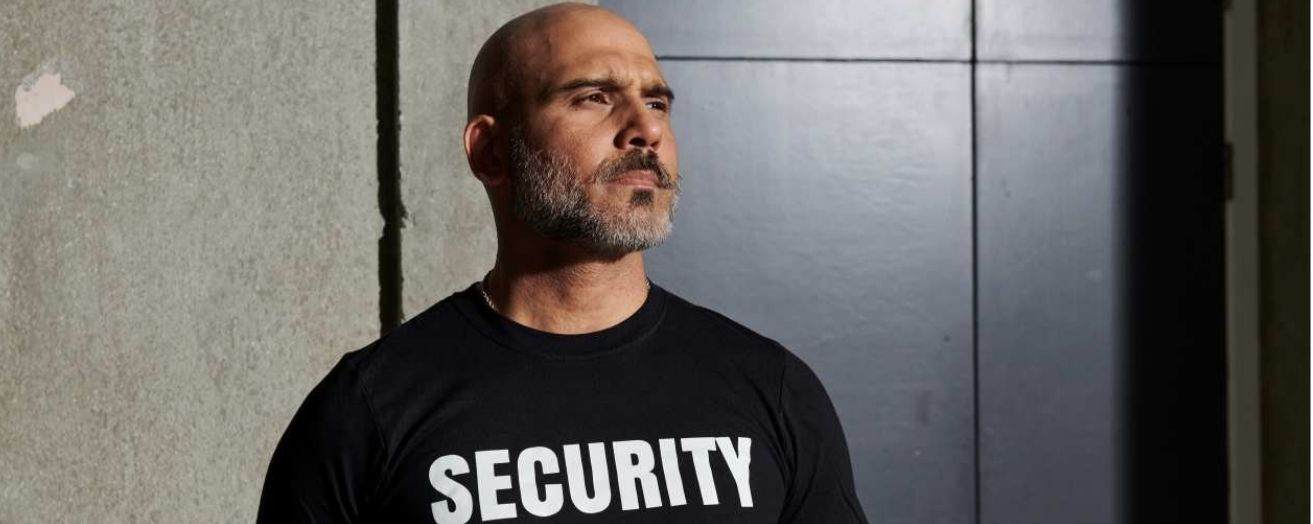
Your SIA Licence Questions, Answered
You’re looking at 2-6 weeks total on average. Training takes 3-6 days, depending on your licence type, and application processing takes 2-4 weeks. It can be longer if you’ve lived abroad, have a complex criminal record, or there are issues with your documents. Check out this blog for the detailed breakdown of the SIA licence timeline.
No. It’s illegal to work in any licensable security role without your physical licence card. Don’t let anyone tell you otherwise. Read more about working while waiting for your SIA licence.
The SIA will tell you why. Depending on the reason, you might be able to appeal. But here’s the kicker—the £184 application fee is non-refundable even if you’re rejected. That’s why it’s crucial to make sure you meet all requirements before applying.
Sometimes. A door supervisor licence covers the widest range of roles. A Security Guard licence excludes licensed premises. Specialist roles like CCTV and close protection need their own specific licences.
Yes, as long as you have the legal right to work in the UK. The SIA verifies this with the Home Office during your application.
You’re looking at £12.21 to £25 per hour, depending on your licence type, experience level, location (London pays more), and the type of venue or client. Close protection can pay significantly more—£15 to £40 per hour.
You can’t work until it’s reinstated. The SIA can suspend or revoke licences for serious breaches like criminal convictions, working outside your licence scope, or providing false information. Learn more about licence suspension and revocation.
Estimated reading time: 21 minutes

Ready to Launch Your Security Career? Here’s Your Action Plan
You’ve got all the information you need. The security industry is waiting for motivated professionals like you, and there’s never been a better time to get started.
First, choose your SIA licence type. The door supervisor licence gives you the most options if you’re unsure which direction to go. Next, find an SIA training course near you and book your spot. Most popular courses fill up fast, so don’t delay. Complete your training and pass the assessments. Then, apply online immediately after finishing your course. Within 4-6 weeks, you’ll be licensed and earning. At £12.21-£25 per hour, your licence investment pays for itself in your first week of work.
The opportunities are there. The jobs are waiting. Don’t overthink it! Every day you delay is money left on the table.
Book an SIA course today to kick-start your journey.





